1. Understanding ASME standard
1.1. ASME Standards in the industry
ASME Certification (American Society of Mechanical Engineers) is a widely recognized international system of standards in the mechanical and pressure equipment manufacturing sectors. These standards are designed to ensure that equipment such as boilers, pressure vessels, and other pressure-related apparatuses meet stringent quality and safety requirements. Each ASME standard is applied to a specific type of equipment, with distinct regulations and requirements aimed at protecting users and the environment.
ASME U Standard: This is one of the most commonly used standards within the ASME system, primarily applied to boilers and pressure vessels. The U standard ensures that these devices are designed and manufactured to safely and effectively withstand high-pressure conditions. The production process under this standard involves rigorous inspections and testing, from raw materials to the final product, to ensure that no defects could compromise the performance or safety of the equipment.
ASME S Standard: This standard is applicable to boilers, including both industrial boilers and those used in power plants. The ASME S standard specifies the requirements for the design, materials, manufacturing process, and testing of boilers. It also includes requirements for maintenance and periodic inspections to ensure that the boilers operate safely throughout their lifecycle.
ASME PP Standard: The ASME PP standard relates to the fabrication of pressure-related equipment, such as steam or hot water piping. This standard mandates that the equipment must be designed and manufactured to endure operational pressures without posing a risk to operators or causing system failures. The PP standard’s requirements encompass material selection, manufacturing methods, and final inspections before the equipment is put into service.
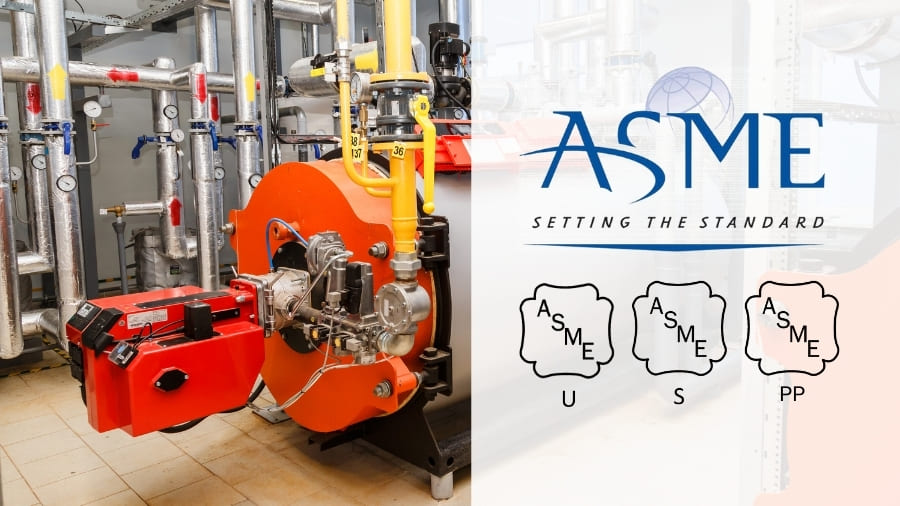
Each ASME standard not only sets specific technical requirements but also provides guidelines on the procedures and testing methods to ensure that the equipment fully meets safety and quality standards. It is crucial for businesses to thoroughly understand these standards to ensure that their products not only comply with technical specifications but also align with international legal regulations.
1.2. ASME certification and evaluation process
The ASME certification and evaluation process is complex, encompassing several stages to ensure that equipment fully complies with ASME standards. Below are the fundamental steps involved in this process:
a) Documentation Review
The evaluation process begins with a thorough review of the company’s documentation. This includes examining all documents related to design, manufacturing processes, and the company’s quality management system (QMS). The documentation must be comprehensive and adhere to ASME standards. Key documents include design drawings, material lists, inspection and testing procedures, and relevant quality certificates. This step ensures that the foundational aspects of production and design meet the stringent criteria set by ASME.
b) Quality Management System (QMS) Assessment
The assessment of the company’s Quality Management System is a crucial part of the evaluation process. The QMS must be developed and implemented according to ASME standards. Key aspects of a robust QMS include quality control from the design phase through to final inspection. The company must have established procedures to monitor and document every step in the manufacturing process, ensuring transparency and traceability. This systematic approach helps in maintaining consistent quality and facilitates the identification and rectification of any issues that arise during production.
c) Physical Equipment Inspection
Following the documentation review and QMS assessment, the next step is the physical inspection of the equipment. This involves examining the materials, production processes, and testing the equipment to ensure it meets ASME standards. Inspections can include non-destructive testing (NDT), pressure tests, and final inspections to confirm that the equipment operates safely and effectively under expected working conditions. This step is critical in verifying that the equipment is built to withstand the operational pressures and stresses it will encounter in real-world use.
d) Approval and Certification
If the equipment and production processes meet all ASME requirements, the company is awarded the ASME certification. This certification serves as proof that the equipment has been rigorously tested and verified to be safe and compliant with international standards. The time and cost associated with obtaining ASME certification can vary depending on the scale and complexity of the project. Typically, this process can take several months to over a year, depending on the company’s preparedness and ability to meet the required standards.
In summary, the ASME certification process is meticulous and requires careful attention to detail at every stage. Companies seeking ASME certification must ensure that their documentation, quality management systems, and physical equipment are all aligned with the stringent standards set by ASME. Achieving this certification not only enhances the safety and reliability of their products but also boosts their credibility and competitiveness in the global market.
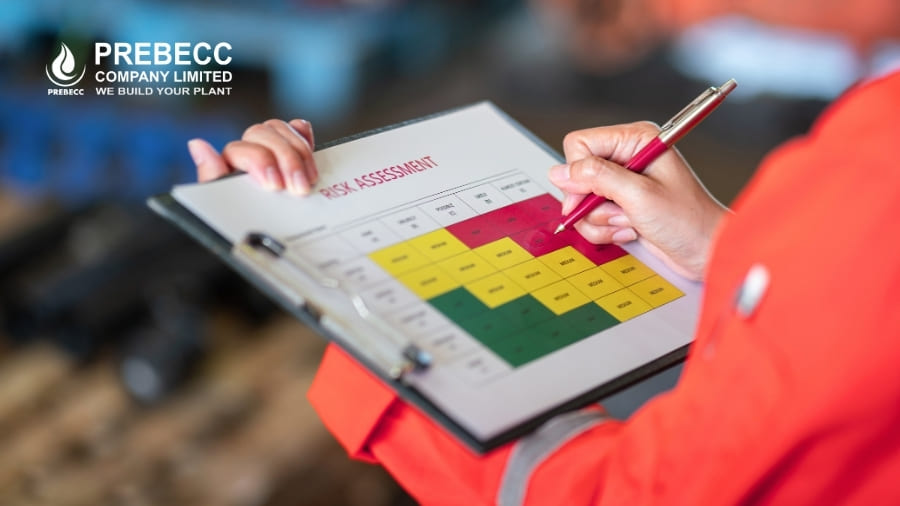
2. Benefits of choosing ASME assessment services in Vietnam
2.1. Cost savings
One of the most significant benefits for businesses choosing to undergo ASME certification in Vietnam is the potential for substantial cost savings. The expenses associated with ASME evaluations conducted abroad can be quite high, involving multiple factors such as service fees, travel and accommodation costs, and even transportation expenses if the equipment needs to be inspected and assessed directly at the certification body’s facilities.
- Service Fees: In Vietnam, the service fees for ASME certification are generally lower compared to developed countries. This is not only due to lower labor costs but also because of supportive policies from the Vietnamese government aimed at fostering the development of the manufacturing industry. ASME certification bodies in Vietnam often offer competitive pricing, making certification more accessible for a wide range of businesses, especially small and medium-sized enterprises.
- Travel and Accommodation Costs: By opting for ASME evaluation within Vietnam, companies can avoid the expenses associated with sending staff or specialists abroad for the certification process. For large projects, sending employees overseas for evaluations can be costly not only in terms of money but also time. Conversely, in Vietnam, ASME specialists can easily access and work directly at the company’s manufacturing facility without incurring these additional costs.
- Transportation Costs: In some cases, equipment may need to be transported to an overseas evaluation or inspection facility, leading to high transportation expenses. Conducting ASME evaluations in Vietnam eliminates or significantly reduces these costs. The equipment can be inspected and assessed on-site at the company’s factory or production facility, leading to considerable savings in both time and money.
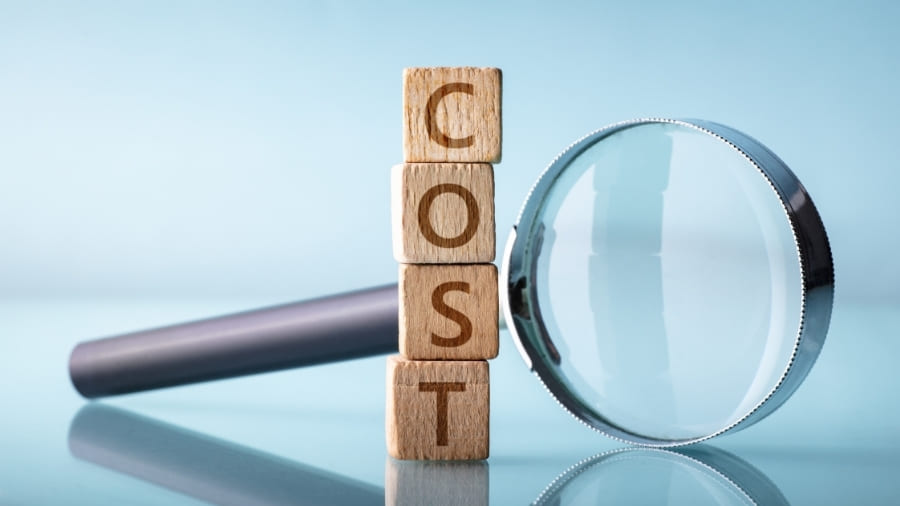
Overall, choosing ASME certification services in Vietnam helps businesses not only save on direct costs but also alleviate financial burdens related to indirect costs such as travel, accommodation, and transportation. This cost-efficiency can be particularly beneficial for companies looking to maintain high standards while managing their budgets effectively.
2.2. Time efficiency
In addition to cost savings, choosing ASME certification services in Vietnam also offers significant time efficiency benefits. Time is a crucial factor for any business, especially in the manufacturing industry, where project completion timelines can directly impact revenue and market competitiveness.
- Expedited Processes: The ASME certification process in Vietnam is often quicker and more efficient than conducting it abroad. ASME certification bodies in Vietnam have experienced professionals who understand the needs of local businesses. This allows them to optimize the certification process, from reviewing documentation and assessing quality management systems to conducting on-site inspections and issuing certifications. As a result, companies can shorten project completion times and bring their products to market faster.
- Local Consultation and Support: One of the significant advantages of selecting ASME certification services in Vietnam is the ability to receive local consultation and support. Businesses can easily access experts, receive prompt feedback, and quickly resolve issues encountered during the certification process. This not only ensures that problems are addressed swiftly but also helps companies avoid unnecessary mistakes, ensuring a smooth and timely certification process.
- Minimized Waiting Times: When performing ASME certification abroad, businesses often face waiting times due to time zone differences or overloaded certification centers. Conducting the certification in Vietnam helps minimize these issues. Companies can work directly with the certification body, ensuring that requirements and processes are executed immediately without prolonged delays.
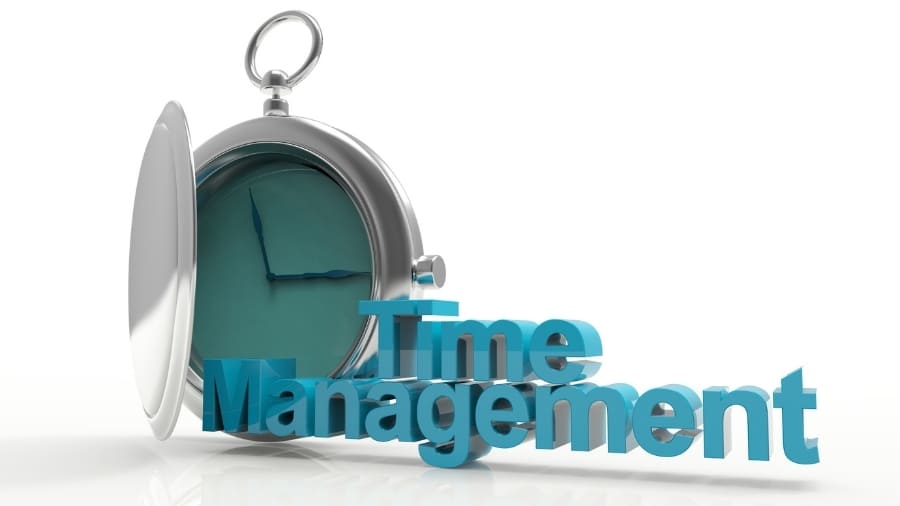
2.3. Communication convenience
Another critical factor to consider when choosing ASME certification services in Vietnam is the convenience of communication. Effective communication between the business and the service provider plays a key role in ensuring that the certification process proceeds smoothly and achieves the best possible outcomes.
- Easy Information Exchange: When working with certification bodies in Vietnam, businesses can easily exchange information and discuss issues related to the certification process. Language and cultural barriers are minimized, making it easier to convey requirements, receive feedback, and address issues promptly and effectively. This is particularly important in complex projects where misunderstandings or lack of information could lead to serious errors.
- Dedicated Technical Support: ASME certification bodies in Vietnam typically have dedicated technical support teams who are deeply knowledgeable about ASME standards. Businesses can receive support throughout the entire process, from preparing documentation to completing the certification. This team not only provides technical assistance but also helps businesses better understand ASME requirements, ensuring that their products meet all necessary quality and safety standards.
- Rapid Problem Resolution: During the certification process, issues may arise that require immediate attention. With ASME certification services in Vietnam, businesses can directly contact expert teams to receive timely responses and resolve problems quickly. This flexibility in communication helps businesses avoid potential risks and ensures that the certification process continues uninterrupted.
- Building Long-term Partnerships: Choosing ASME certification services in Vietnam offers not only immediate benefits but also helps businesses build long-term partnerships with service providers. These relationships can yield numerous future advantages, such as swift support for new projects, cost-saving opportunities, and priority in scheduling evaluations.

3. Considerations when choosing an ASME audit services
When a business decides to select a service provider for ASME evaluation and certification, careful consideration of key factors will help ensure that the partnership proceeds smoothly and effectively. Below are the factors to consider:
3.1. Reputation and experience
The reputation and experience of the service provider are among the top factors to consider. A reputable provider typically has a long history of successful projects in ASME evaluation and certification. Their reputation is built on positive feedback from past clients, who are often large businesses with strict quality and safety requirements. These client testimonials serve as an accurate measure of the provider’s capability and reliability.
To evaluate the reputation of a provider, businesses should research the projects they have completed. These projects may be listed on the provider’s website or mentioned in reference materials. Companies should also request information about previous clients and attempt to contact them for feedback on the quality of service, responsiveness, and overall satisfaction with the results.
Additionally, seeking advice from industry peers or experienced professionals is an effective way to assess a provider’s reputation and experience.
3.2. Technical expertise
The technical expertise of the service provider’s team is another critical factor to consider. To ensure that the ASME evaluation and certification process is accurate and efficient, the team must have a high level of technical expertise, deep knowledge of ASME standards, and practical experience in this field.
The team should include individuals with advanced education in relevant fields such as engineering, mechanical design, and quality management. They must also have hands-on experience working with ASME standards and have participated in similar evaluation and certification projects. This expertise enables them to identify and address complex issues that may arise during the evaluation process, ensuring that the business’s equipment meets all safety and quality standards.
Moreover, the service provider should be equipped with modern tools and advanced technology to support the evaluation process. Accurate measuring instruments, advanced data management software, and other supporting tools are essential to ensure that the evaluation is conducted efficiently and reliably.
3.3. Scope of services
When choosing a service provider, businesses must ensure that the provider offers a comprehensive range of services related to ASME evaluation and certification. A full-service provider will not only conduct the necessary inspections and evaluations but also support the business from initial consultation through to project completion.
Related services may include consulting on quality management systems, preparing the necessary documentation, conducting on-site inspections, and assisting the business in resolving any issues that arise. Additionally, the provider should offer after-sales services, such as maintenance or advice on maintaining ASME certification once it has been granted.
A provider with a wide and comprehensive range of services will help the business save time and effort in finding and coordinating with multiple providers. This also reduces risks and ensures that the evaluation process continues smoothly without encountering unexpected obstacles.
3.4. Service costs
Cost is an unavoidable factor when choosing a service provider. Businesses need to compare prices among different providers to ensure that they receive services that fit within their budget. However, the selection should not be based solely on cost; the quality of services provided must also be taken into account.
The service provider should provide a clear and detailed quotation, listing specific fees so that the business can easily manage and control costs. Businesses should also be cautious of hidden fees or unforeseen expenses that are not mentioned in the initial quotation. A provider that is transparent and clear about costs will help the business avoid unexpected surprises and ensure that the project proceeds smoothly.
3.5. Completion time
The time required to complete the project is another important factor to consider. The service provider should commit to a clear and specific project completion time, allowing the business to plan production and operations effectively.
Businesses should choose providers who can complete the project on time without compromising the quality of the evaluation. Timely project completion not only helps businesses avoid disruptions in production but also ensures that products can be brought to market promptly, maintaining a competitive edge.
A provider with experience and a strong reputation typically has an optimized workflow that shortens completion times while fully adhering to technical requirements and ASME standards. Businesses should also discuss and agree on completion times from the outset to ensure that both parties have clear expectations and to avoid conflicts later on.
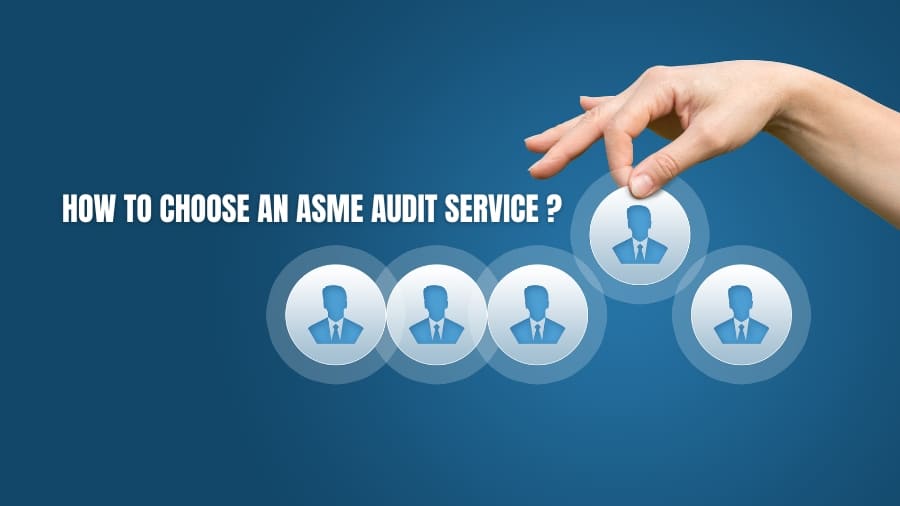
4. Challenges and solutions
During the process of ASME evaluation and certification, businesses may face numerous challenges. These challenges can arise from the complex technical requirements of ASME or from a shortage of experienced and skilled personnel. However, with appropriate solutions, businesses can overcome these obstacles and ensure a successful ASME certification process.
4.1. Difficulties in meeting ASME technical requirements
ASME certification is not just a standard certification; it is a commitment to the quality and safety of pressure equipment. To achieve this certification, businesses must strictly adhere to the technical standards set by ASME, which encompass design, manufacturing, inspection, and operation of pressure equipment.
One of the most significant challenges is that ASME’s technical requirements are stringent and detailed, requiring businesses to have extensive technical knowledge and the ability to implement advanced manufacturing processes. If a business fails to meet these requirements, the likelihood of being denied certification is high, which can severely impact production activities and the company’s reputation.
4.2. Shortage of experienced personnel
Another common challenge businesses face is the shortage of experienced personnel to handle ASME requirements. The workforce, including engineers, quality management experts, and workers, must have a deep understanding of ASME standards and processes. However, finding and retaining a team with the necessary qualifications and experience to meet these requirements is not always easy.
Additionally, training and upskilling employees require significant time and financial investment. This can place considerable pressure on businesses, especially small and medium-sized enterprises, as they need to balance investing in human resources with maintaining daily production activities.
4.3. Solutions
a) Seek Experienced Consulting Firms
An effective solution to overcome technical and manpower challenges is to seek support from experienced consulting firms in the field of ASME evaluation and certification. These consulting firms typically have teams of experts with extensive knowledge of ASME standards and practical experience in guiding businesses to meet the stringent requirements of this certification.
Consulting experts can assist businesses from the initial stages, including analyzing ASME technical requirements, evaluating the current status of the business, and providing specific solutions to improve production processes and quality management. This helps businesses minimize the risk of certification denial and increases the likelihood of successfully achieving ASME certification.
Moreover, experienced consulting firms can also assist businesses in preparing the necessary documents and materials for the evaluation process. This not only saves time but also ensures that all steps in the evaluation process are conducted accurately and efficiently.
b) Invest in Employee Training
To address the shortage of experienced personnel, businesses should invest in employee training and development. Training not only enhances the professional skills of employees but also helps them better understand ASME requirements and processes, thereby improving their ability to meet technical standards during production.
Businesses can organize internal training sessions or collaborate with external training providers to offer specialized training programs on ASME standards. These training sessions should include both theoretical and practical components, allowing employees to apply the knowledge gained to their work.
Additionally, businesses should establish a career development path for employees, encouraging them to continue improving their skills and knowledge. This not only helps the business maintain a high-quality workforce but also motivates employees, fostering long-term commitment to the company.
Choosing ASME evaluation services in Vietnam offers numerous benefits, from cost and time savings to convenience in communication. To ensure a smooth evaluation process, businesses should select a reputable service provider, carefully prepare the necessary documents, and collaborate closely with the service provider. Thorough research and choosing the right service will help you achieve ASME certification and enhance the quality of your products.
